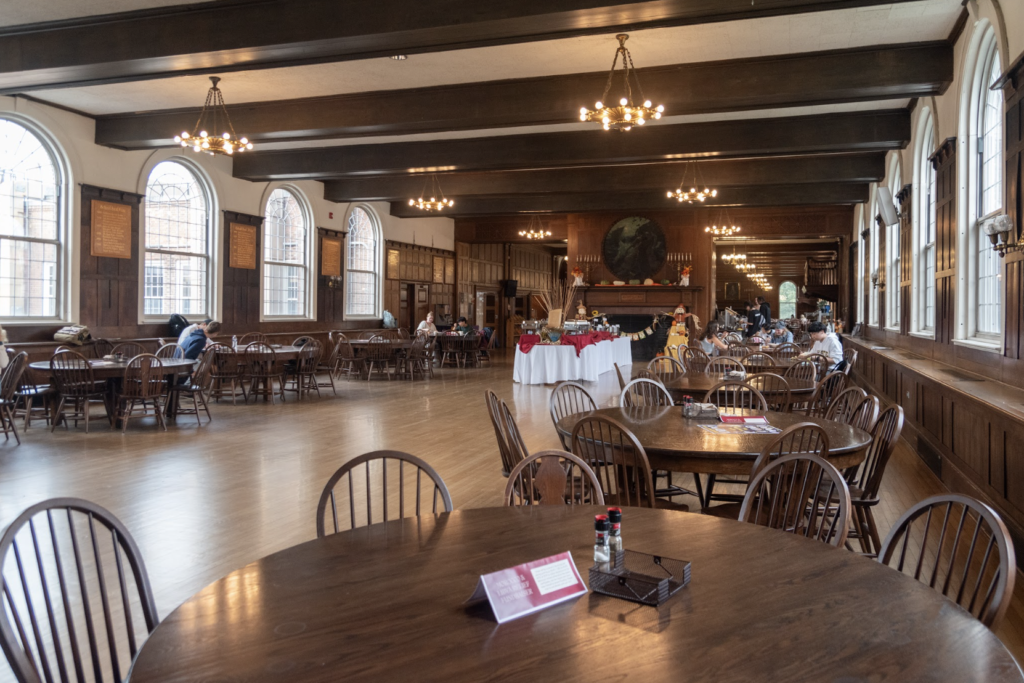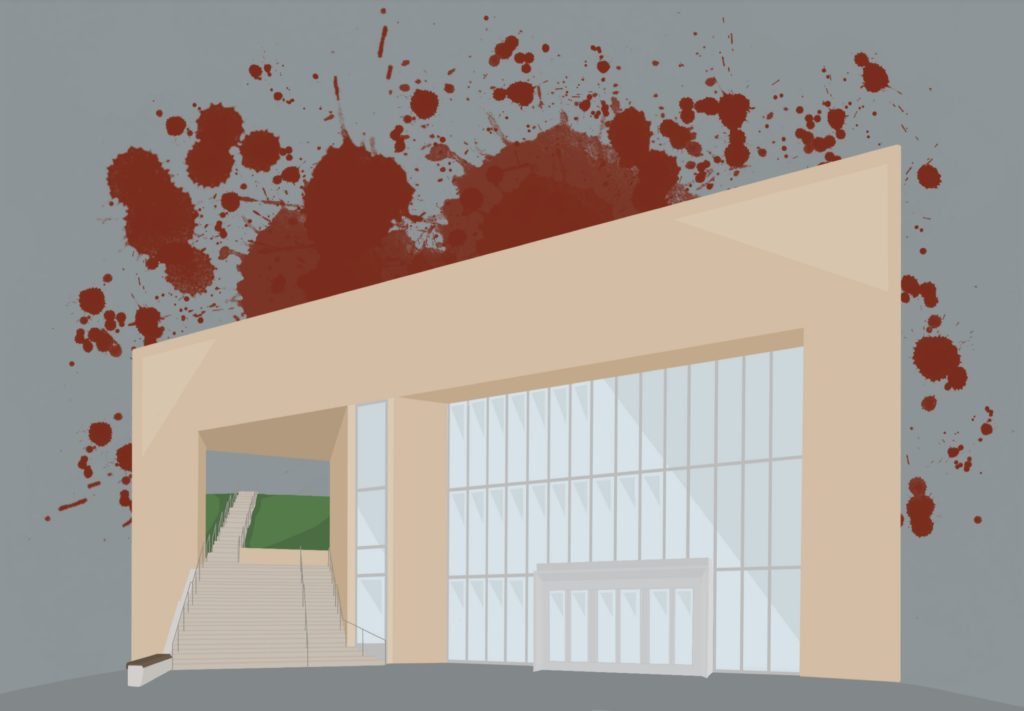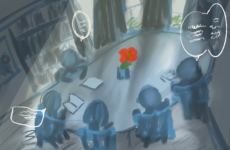
By Francesca Howard ’26
We’ve all been there: the dreaded walk through the senior section of the dining hall. As you make your way through the rows of tables, you feel every pair of eyes turn your direction, and sixth-formers seem to pierce straight through to the deepest parts of your soul. Each of your footsteps echoes louder than the last, and you don’t know what they are whispering about, but you are certain it is about you. You feel like you’ve become a spectacle, an enigma, the protagonist of a story you never wanted to be a part of.
I am aware that this is a dramatic description, perhaps a hyperbole of reality, but doesn’t it feel a touch too real? Now, don’t get me wrong, I understand the merit of rites of passage. The senior section is a tangible achievement that comes with entering one’s final years at the School. It is emblematic of the culmination of one’s journey through Choate, and it is a milestone to look forward to. However, the dining hall of our school isn’t the place for milestones — it should be a space where every student, regardless of their form, can congregate as part of a cohesive community; yet, the mere existence of the senior section compromises this utopian vision. It sends a message of separation, hierarchy, and exclusion. Carving sections out to separate students based on seniority reinforces the idea that there are “insiders” and “outsiders.” So why, as a community that prides itself on inclusivity and diversity, do we cling to a practice that palpably divides?
There’s a myriad of research suggesting that regular interaction between younger and older students can be incredibly beneficial for both groups. Younger students can benefit from the mentorship and guidance of their older peers. Simultaneously, seniors have the opportunity to impart their wisdom to underclassmen and gain leadership skills. The senior section, in its current configuration, stymies such interactions.
I, myself, have suffered at the hands of the senior section. As a freshman, I felt the dismay of walking through the dining hall entrance. My first week at Choate, I lamentably made the decision to sit in their seating without the knowledge of the pre-established social contract. I will forever regret this mistake and the words “why are you sitting here” uttered from surrounding seniors. My friends, too, have expressed their anxiety as a result of the dining hall layout.
Moreover, the word I hear surfacing most frequently in defending the merit of the senior section is “tradition.” While there may be no overt signage demarcating seating arrangements, the unspoken yet widely accepted and vigilantly enforced rule persists. I think it’s time we look beyond elitist traditions that no longer serve the collective welfare of Choate Rosemary Hall. It’s time to reimagine spaces in a way that celebrates all students, not just a specific form.
The thing about traditions is that they aren’t stagnant. They evolve, adapt, and change with society, the same way Choate does. The question we must ask ourselves is whether the senior section is a tradition worth preserving. Why honor the past at the expense of the present? The senior section’s era has passed, and now, it’s time for a change.




